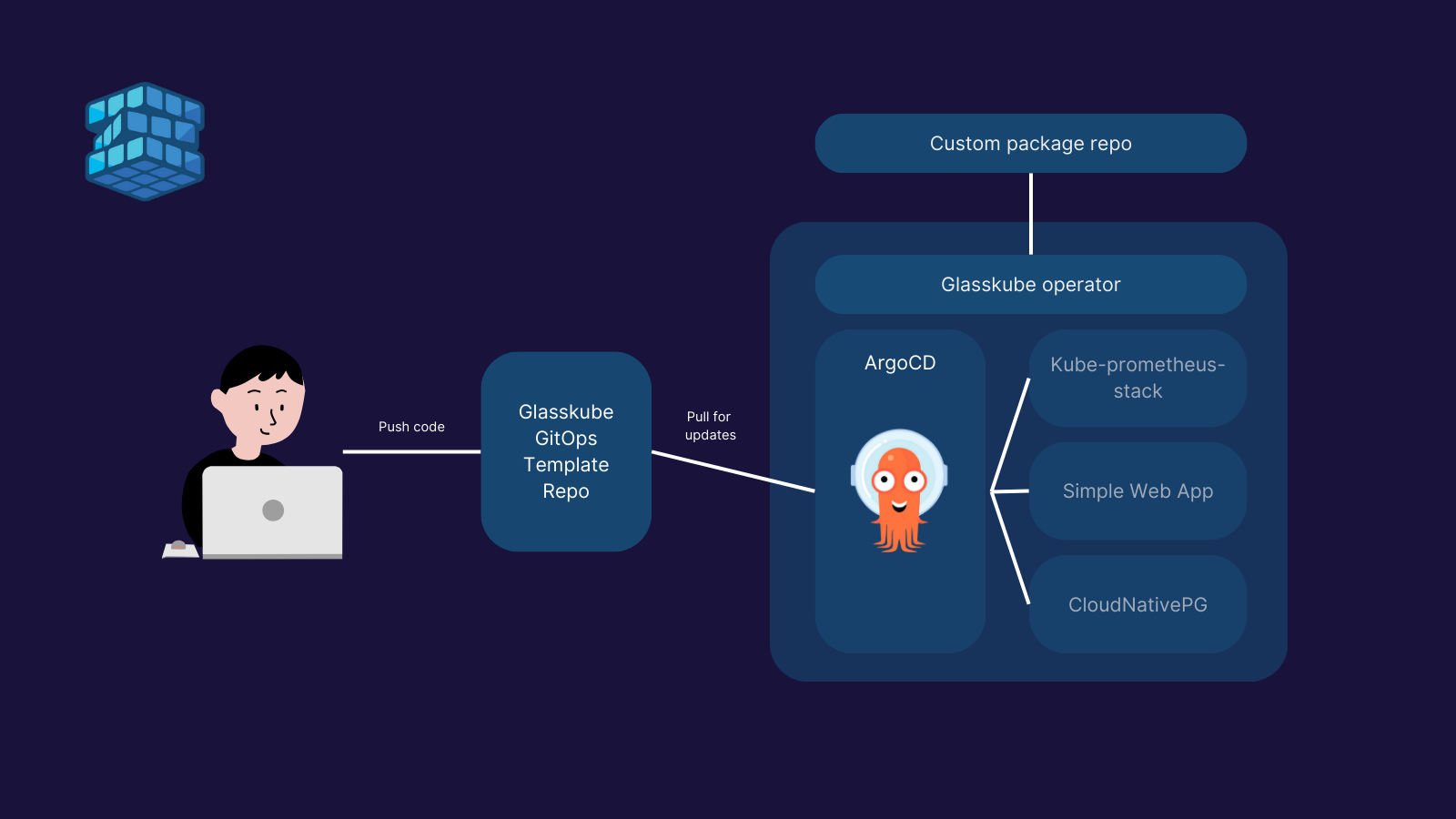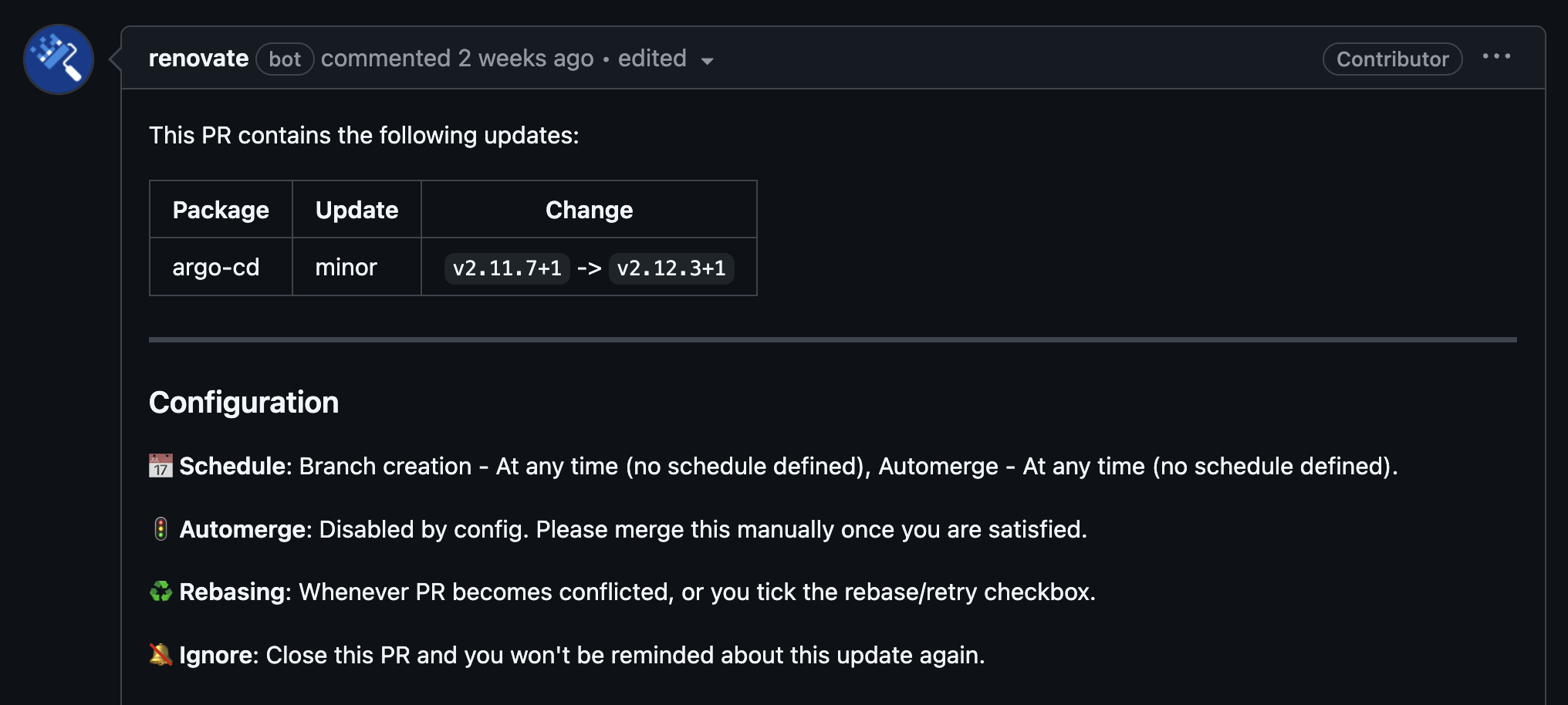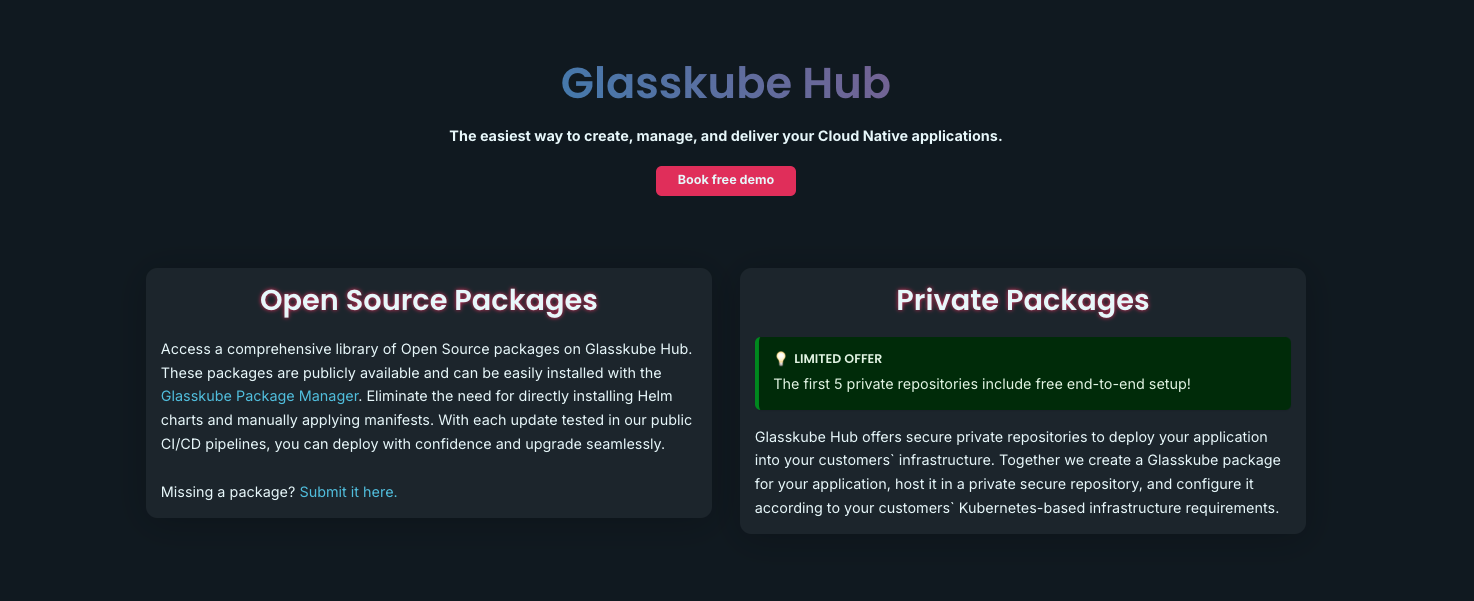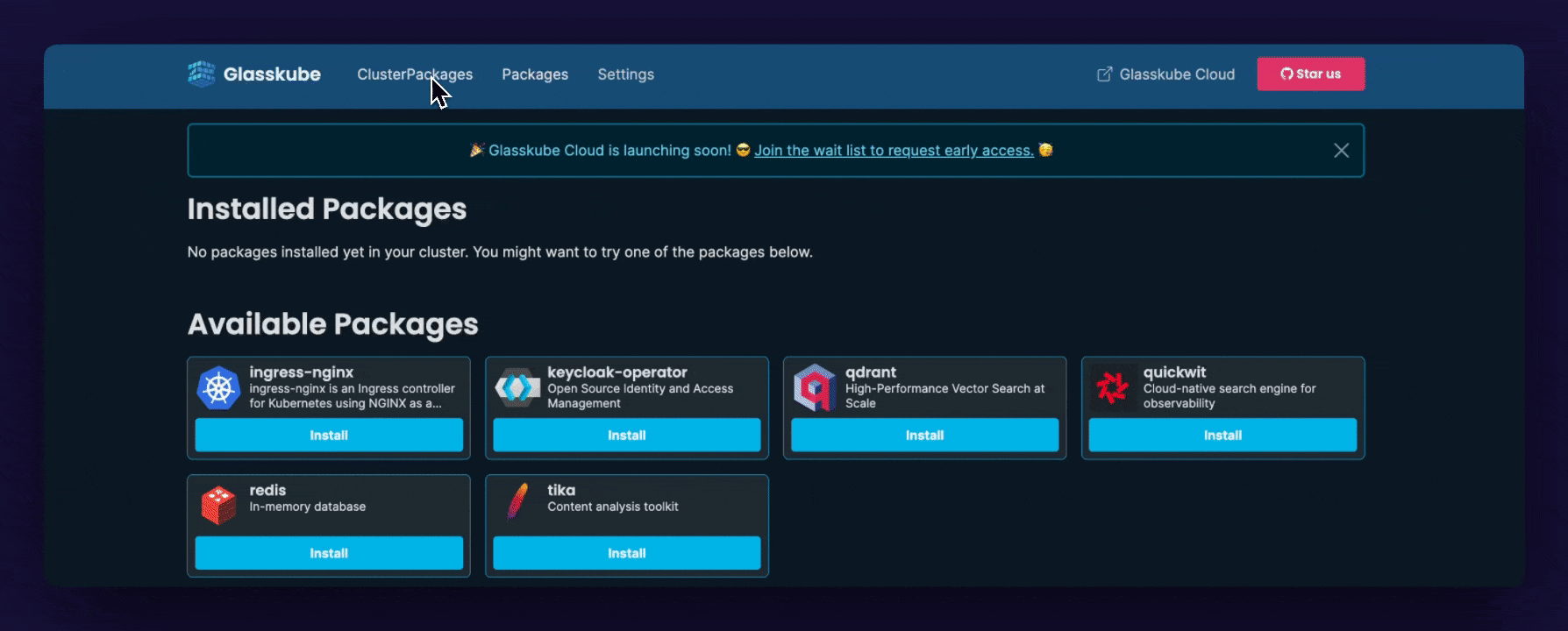Launch week 2 - A new frontier of Kubernetes package management

Howdy there Kubernetes package managers! 🤠
In case you’re new around these parts. A lot has been going on in the wild world of Kubernetes package management lately, so we thought it was high time to put a launch week together to announce a few features, share some exciting news and keep you up to date on what's going on with the most exciting Kubernetes package manager around these parts.
Yeehaw!
Ok I’ll stop talking like a cowboy now 😅
I hope it goes without saying that all are welcome, so don’t be a stranger, join us on Monday the 9th of September for our launch week kickoff party. Reserve your spot here.

Make sure to mark “interested“ to be notified on the day of the event.
So you might be thinking to yourself, what does the Glasskube team have up their sleeve? Let’s have a look, shall we?
1. Glasskube is Gitops Ready with ArgoCD
Day one of launch week will be about celebrating the fact that it’s safe to consider Glasskube “GitOps ready“. GitOps has became the standard for Kubernetes configuration file revision, utilizing Git as the single source of truth. Glasskube can not only directly modify the resources in your cluster, but now also output your Glasskube packages as yaml to put them into Git.

During the rest of the launch week, we will showcase more new features of Glasskube daily.
2. What’s so good about GitOps anyway?
Imagine if I told you you could bootstrap an ArgoCD setup with just one command and keep it up-to-date. The Glasskube bootstrap command now also supports bootstrapping from git.

The Glasskube GitOps template is officially here. You can now define every single component of your cluster package stack, now supporting both public and private GitHub repositories, push it to a Git repository, and let ArgoCD handle the deployment.
And it’s no exaggeration to say that deploying your packages to Kubernetes now takes seconds instead of hours. Who wouldn’t want that?

3. Hear that? …silence! But your packages are still up-to-date
You might be wondering, "Wait, so I don’t have to update the packages myself?"
That's right! The public Glasskube package repository, the GitHub repo setup similar to Homebrews public tap, is the source for our Renovate integration. So if new versions of supported Glasskube packages are available, we test and add them to the list of versions you can choose from. Also the Renovate automation picks up the latest version and creates a pull request in your GitOps repository.

We'll dive deeper into how this works and discuss how you can opt in or out of the auto-updating feature.
4. Everybody needs a home, and so do packages
Introducing Glasskube Hub, think of it as the equivalent to Docker Hub or Artifact Hub, but for Glasskube packages. All available Glasskube packages are conveniently gathered in one place and can be consumed on demand.

In addition to storing freely available Open Source Packages, the Glasskube Hub will also host private packages.
Wait, what are private packages exactly?
If your organization excels at what you do, so much so that customers are clamoring to self-host your solution, yet you lack the time, resources, or inclination to make it happen - Private Packages are the answer. We partner with you to build and host a Glasskube native package around your offering, making it incredibly simple to customize, configure, install, and update your tool within your customers' infrastructure. If you’d like to learn more, schedule a call today.
Throughout the launch week, we'll dive into the best ways to use Glasskube Hub, including how to work with private packages stored there.
5. Introducing Package Scopes
Even though the feature was introduced a couple of minor versions ago. We will explore the use cases for differently scoped packages.

Here is a sneak preview:
- Cluster-scoped: These are packages that provide cluster-wide functionality or manage shared resources, such as networking, monitoring, or security tools.
- Namespaced: These are usually packages that can be specific to a particular application or team, or when you need multiple isolated instances of the same package.
Package scopes give package authors the ability to control the scope of the installation.
Wait there’s more?
There sure is, during the whole week we are both launching Glasskube on DevHunt, if you could be so kind as to support us over there, we'd be mighty grateful!
Animals are our friends, we are planning a different type of hunt
No launch week can be complete without an actual product launch! We are exploring new platforms to be able to find new Kubernetes admins who want to join the party! We will give you more information during the kickoff party.

Launch video
Don’t miss a thing
Follow us on Discord, Twitter, and LinkedIn because we’ll be sharing announcements events every day. I hope you are as excited as we are!